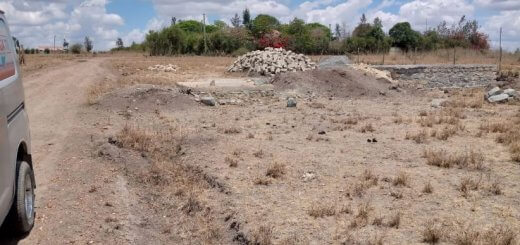Exploring Best Kenya’s Coastal Property Market: Is It Worth the Hype?
The coastal property market in Kenya has been a hot topic for investors, homeowners, and developers for many years. With beautiful beaches, a tropical climate, and strategic positioning along the Indian Ocean, Kenya’s coastline has become an attractive option for both local and international buyers. However, the question remains: Is the coastal property market worth the hype? In this comprehensive guide, we will dive deep into the factors driving the market, explore its potential for investment, and analyze the opportunities and risks associated with buying property along Kenya’s coastline.
The Appeal of Kenya’s Coastal Property Market
Kenya’s coastline, stretching over 500 kilometers from the Tanzanian border in the south to the Somali border in the north, offers a wide variety of property types, from beachfront villas and resorts to residential apartments and commercial properties. The natural beauty of the coastline, combined with the economic potential, has drawn substantial interest from local and foreign investors.
Natural Beauty and Tourism

Coastal Property Market
The Kenyan coast is home to some of the world’s most beautiful beaches, such as Diani, Malindi, and Watamu. These areas are famous for their pristine white sands, turquoise waters, and coral reefs, attracting tourists year-round. Tourism is a major driver of the coastal property market, with many investors seeking to capitalize on the demand for holiday homes, resorts, and short-term rental properties.
- Beachfront Properties: Coastal properties with ocean views or direct beach access are highly sought after for vacation rentals, luxury estates, and boutique hotels.
- Tourism Growth: The recovery of Kenya’s tourism sector post-COVID-19 has contributed to the increasing demand for properties in coastal regions.
Strategic Location
Kenya’s coastline is strategically located along key international trade routes. The port city of Mombasa, Kenya’s second-largest city, plays a critical role in regional trade and logistics, creating a demand for commercial properties, warehouses, and transport-related infrastructure. The coastal region’s proximity to East African countries also enhances its appeal for cross-border business activities.
- Mombasa as a Business Hub: As Kenya’s primary port, Mombasa attracts both foreign direct investment (FDI) and regional investments in sectors such as logistics, manufacturing, and retail.
Types of Properties in the Coastal Market
The Kenyan coastal property market offers a diverse range of property types catering to various buyer preferences and investment goals. Whether you’re looking to invest in residential, commercial, or hospitality properties, the options are plentiful.
Residential Properties
Residential properties along the coast range from modest apartments to luxurious beachfront homes. The demand for residential properties is not just from locals but also from expatriates, retirees, and those looking for holiday homes. Key areas include Mombasa, Diani, and Kilifi.
- Apartments and Villas: Mombasa, the largest urban area along the coast, offers a variety of apartment complexes in areas like Nyali, Bamburi, and Shanzu.
- Beachfront Estates: Areas like Diani and Watamu are known for their upscale beachfront villas and estates, attracting both local and international buyers.
Commercial Properties
The coastal region, especially Mombasa, has a growing demand for commercial real estate due to its economic significance. Retail spaces, office buildings, and warehouses are increasingly in demand as businesses expand and international brands set up operations.
- Retail and Office Spaces: Mombasa’s central business district (CBD) and popular tourist areas like Diani attract retail spaces, restaurants, and office buildings.
- Logistics and Warehousing: The growing importance of the Port of Mombasa has led to increased demand for logistics facilities and warehouses.
Hospitality and Tourism Properties
Given the popularity of Kenya’s coastline as a tourism destination, hospitality properties, including resorts, guesthouses, and hotels, are lucrative investments. Diani, Malindi, and Watamu are prime locations for such investments, offering significant potential returns.
- Eco-Friendly Resorts: Investors are increasingly focusing on eco-friendly, sustainable tourism properties that appeal to eco-conscious travelers.
- Short-Term Rentals: Airbnb and other short-term rental platforms have grown in popularity, leading to an increase in demand for vacation homes and apartments along the coast.
Factors Driving the Coastal Property Market in 2025
Several factors contribute to the ongoing growth and attraction of the coastal property market in Kenya. Understanding these driving forces can help investors make informed decisions when considering property investments.
Economic Growth and Development
Kenya’s economic growth plays a significant role in the expansion of its real estate market. Coastal areas benefit from increased infrastructure development, improved transport networks, and growing urbanization. Investments in roads, airports, and the expansion of the Mombasa Port are directly contributing to the growth of the coastal property market.
- Infrastructure Development: The ongoing development of the Standard Gauge Railway (SGR) and improved road networks are making coastal properties more accessible to potential buyers and investors.
- Urbanization: As Mombasa and other coastal towns grow, there is increasing demand for both residential and commercial real estate.
Growing Middle Class and Tourism
Kenya’s expanding middle class is driving demand for more housing options, particularly in major coastal cities like Mombasa. Additionally, the revival of the tourism industry is creating opportunities for property owners to lease or sell their properties for vacation rentals.
- Local Tourism: Domestic tourism has grown, with Kenyans increasingly seeking coastal getaways for vacations.
- International Tourism: The return of international tourists, coupled with the Kenyan government’s efforts to promote the coast as a destination, has boosted demand for properties.
Foreign Investment and Buyers
The coastal property market is not only attracting local investors but also foreign buyers seeking second homes or holiday retreats. Kenya’s favorable real estate laws, including the ability of non-citizens to own property, has made the coastal region especially appealing to international investors.
- Non-Citizen Ownership: The Kenyan government allows foreigners to purchase property, especially in coastal areas, making it an attractive option for expatriates and global investors.
- Incentives for Foreign Buyers: Various government incentives, such as favorable tax regimes and simplified property registration processes, encourage international investment in coastal properties.
Risks and Challenges in the Coastal Property Market
While the coastal property market offers significant opportunities, it is not without its risks and challenges. Understanding these factors can help investors make more informed decisions.
Environmental Risks
Kenya’s coastline is prone to environmental hazards such as erosion, rising sea levels, and cyclones. These natural risks can affect property values and deter potential buyers.
- Coastal Erosion: Some beachfront properties face the risk of losing land to erosion, which can decrease their value over time.
- Climate Change: As climate change accelerates, rising sea levels may pose a long-term risk to properties located near the shore.
Regulatory Challenges
Navigating the regulatory landscape in the coastal property market can be challenging. Issues such as land ownership disputes, zoning regulations, and bureaucracy in acquiring permits can delay property transactions.
- Land Ownership Disputes: Coastal land is often subject to disputes, especially in popular tourist areas, due to unclear land titles or historical ownership issues.
- Zoning and Planning: Buyers must be cautious of properties that may not comply with zoning laws or have building restrictions that affect their development potential.
Market Volatility
The coastal property market, like many real estate markets, can be volatile. Changes in the economy, tourism trends, and government policies can affect property prices.
- Fluctuating Property Values: Property values can fluctuate based on tourism activity, economic conditions, and changes in local regulations.
- Supply and Demand: Over-supply in certain areas may lead to a decrease in rental yields or property values, making it essential to carefully research the market.
Conclusion: Is the Coastal Property Market Worth the Hype?
Kenya’s coastal property market offers significant opportunities for investors and homeowners alike. With its strategic location, natural beauty, and growing tourism sector, the market is likely to continue thriving in the coming years. However, prospective buyers should be aware of the risks involved, such as environmental challenges, regulatory hurdles, and market volatility.
Ultimately, the coastal property market is worth the hype for those who do their due diligence, understand the local market dynamics, and are prepared for long-term investments. Whether you are considering buying a holiday home, a rental property, or a commercial space, the Kenyan coast offers a range of options that cater to different investment goals.


